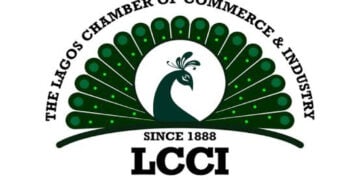Following the World Bank’s warning of rising poverty levels in Nigeria despite 3.9 per cent economic growth reported for the first half of 2025, the Manufacturers Association of Nigeria (MAN) and economic scholars have urged the Nigerian government to adopt deliberate and practical measures to address the worsening living conditions of its citizens.
The experts made the remarks in separate reactions to the latest World Bank report, which indicated that the nation’s economy grew by 3.9 per cent in the first half of 2025. The report raised concern over the current price hike and rising poverty rate, calling on the government to ensure its policy reforms improve living standards and tackle soaring food prices.
The director general of MAN, Segun Ajayi-Kadir, called poverty reduction a deliberate government policy objective, focusing on key areas such as access to food, medicine, and education for young people. He stressed that policies must be gender-sensitive, targeting the disproportionate impact of poverty on women and girls, and called for increased support through social welfare schemes for these groups.
Ajayi-Kadir affirmed that Nigeria’s recent economic reforms, while challenging, are essential for long-term stability and growth.
The MAN DG acknowledged the short-term hardships caused by measures such as the removal of fuel subsidies, exchange rate unification, and tax reforms introduced since 2023. He emphasised that these policies were crucial to pull the nation “back from the brink” and lay the groundwork for sustainable economic progress.
Ajayi-Kadir noted that although the reforms have not yet reduced poverty significantly, this outcome was anticipated given the nature of the adjustments. He stressed the urgent need for the federal government to prioritise deliberate strategies now to cushion the impact on citizens and help millions escape poverty.“The reforms were not intended to offer immediate comfort but to stabilise the economy and create a path for growth,” he said. Ajayi-Kadir called for targeted economic initiatives to reduce the cost of living and accelerate production.
He also highlighted the importance of improving the ease of business and fast-tracking reform implementation to boost supply.
Ajayi-Kadir noted that insecurity is a significant challenge that disrupts food logistics and drives up staple food prices. He urged comprehensive action to tackle insecurity to ease the burden on Nigerians. The DG further advocated for enhanced coordination with subnational governments to integrate them into the tax reform framework, warning that redundant local levies could undermine the benefits of the reforms.
According to the Nigeria Development Update (NDU) released on Wednesday by the World Bank, Nigeria’s economy recorded a 3.9 per cent growth in the first half of 2025, reflecting the positive impact of ongoing fiscal and monetary reforms.
The multilateral institution, however, cautioned that the gains from the Tinubu administration’s reforms have yet to translate into significant improvements in living standards for millions of Nigerians still grappling with poverty, food insecurity, and high inflation.
The report, “From Policy to People: Bringing the Reform Gains Home,” was released on Wednesday. It commends the Nigerian government for taking bold measures to stabilise the economy through exchange rate unification, fuel subsidy removal, and tighter monetary policies. However, it emphasises the urgent need to shift focus from macroeconomic stabilisation to improving household welfare and social outcomes.
According to the NDU, the 3.9 per cent growth in the first half of 2025 represents a rise from the 3.5 per cent recorded in the first half of 2024. The World Bank attributed this expansion to strong service and non-oil performance and modest gains in oil production and agriculture.
Professor of Economics at the University of Ibadan, Olanrewaju Olaniyan, noted that economic growth, as reflected in gross domestic product (GDP), does not equate with growth or improvement in the quality of life of Nigerians because the fundamental challenges, including epileptic power supply, insecurity, and inflation, are not being addressed.
Also, Professor of Economics at the University of Benin, Hassan Oaikhenan, described Nigerian economic growth as “jobless growth.” He said GDP growth without a reflection in the citizenry’s quality of life indicates a disconnect within a system that ought to be inclusive and impactful.
Professor Olaniyan said the observed economic growth has failed to trickle down to improvement in the quality of life of most Nigerians. He also said that despite the 3.9 per cent economic growth announced by the World Bank on Wednesday, Nigeria may not experience growth in real terms until the issues of poor power supply, which has largely hindered productivity and contributed to the high cost of production, are dealt with.
“Income in real terms has not increased despite the GDP growth. Instead, the average income of Nigerians has reduced,” the university Professor said in an interview with our Correspondent.
Olaniyan said, “The insecurity that has affected the agricultural sector must be addressed. Poor power supply remains a major challenge to productivity. Even though the minimum wage has been increased, it has not improved people’s lives. Expenses have increased for all Nigerians. All these things must be addressed frontally.”
Apart from that, the university don said Nigeria also needs to seriously improve upon basic issues such as infrastructure, education, health, and transportation to create jobs and wealth and, by extension, reduce poverty and inflation.
Professor Oaikhenan said the current situation “requires some pragmatic efforts of the government. Governments at all levels have to provide the necessary infrastructure and create the right environment for businesses to exist, thrive and create jobs.” He also said special attention must be paid to the insecurity that is ravaging agriculture, driving most farmers out of their farmlands and denigrating the sector’s potential.
Agriculture contributes about 27 per cent to the Nigerian economy. But that is seriously threatened by the widespread insecurity across the country, which once boasted of being the food basket of West Africa. ” The Agriculture sector is more impacted. Those who are supposed to engage in farm activities cannot do so anymore! The government must be up and doing. Leave the propaganda. Deal with insecurity and wipe out bandits. Address those issues frontally,” Professor Oaikhenan said.
More highlights from the NDU report showed that Nigeria’s external position had improved considerably, with foreign reserves surpassing $42 billion and the current account surplus rising to 6.1 per cent of GDP, buoyed by higher non-oil exports and reduced oil imports.
On the fiscal front, the World Bank reported that the federal deficit is projected to remain steady at 2.6 per cent of GDP in 2025 despite lower oil prices. More notably, public debt is forecast to decline for the first time in over a decade—from 42.9 per cent to 39.8 percent of GDP—reflecting improved fiscal discipline and revenue mobilisation efforts.
While acknowledging these achievements, the Bank expressed concern that macroeconomic improvements have not translated into better welfare outcomes for the average Nigerian. The report observed that many households face severe hardship due to persistent food inflation and limited income growth.
“Food inflation remains the most pressing issue,” the report stated. “Poor households—who spend up to 70 per cent of their income on food—have seen the cost of a basic food basket rise fivefold between 2019 and 2024.”
World Bank Country Director for Nigeria, Mathew Verghis, said the government’s reforms are laying the groundwork for a stronger and more stable economy, but warned that macroeconomic stability alone is insufficient.
“The Nigerian government has taken bold steps to stabilise the economy, and these efforts are beginning to yield results,” Verghis said. “But macroeconomic stability alone is not enough. The true measure of success will be how these reforms improve the daily lives of Nigerians—especially the poor and vulnerable.”
The World Bank highlighted three critical priorities that Nigeria must pursue urgently to bridge the gap between policy success and tangible welfare gains.
The bank called for decisive action to tackle food inflation by removing trade barriers such as import bans and excessive duties, while addressing structural challenges in agricultural production—including insecurity, poor logistics, limited access to quality seeds and fertilizers, and inadequate storage and transport infrastructure.
The Breton wood institution urged the authorities to enhance the efficiency of public spending through greater fiscal transparency and accountability, particularly in Federation Account (FAAC) deductions. It also recommended the establishment of a national fiscal pact to align public expenditure with developmental priorities, especially in education, healthcare, and human capital investments.
The report emphasised the need to expand and institutionalize social protection by introducing regular, domestically financed cash transfers for the ultra-poor and developing a shock-responsive safety net to help vulnerable households cope with economic shocks and crises.
World Bank further observed that while inflationary pressures may begin to ease gradually, they are expected to remain elevated soon. Sustained monetary discipline and continued structural reforms will be required to bring down food and core inflation to levels consistent with stable growth and improved welfare.
According to Samer Matta, the World Bank’s Senior Economist for Nigeria, inflation remains the “biggest tax on the poor.” He said while the reforms address long-standing policy distortions, the country must persist in implementing policies that directly tackle the root causes of high prices and weak productivity.
“Nigeria’s reform efforts are commendable and are beginning to show positive results,” Matta noted. “However, the cost of living remains high, and tackling food inflation must remain at the centre of policy efforts to ensure that growth benefits the poor.”
Looking ahead, the bank’s outlook for Nigeria remains cautiously optimistic. It projects economic growth to rise modestly from 4.2 per cent in 2025 to 4.4 per cent by 2027, driven primarily by continued expansion in the services sector, alongside steady growth in agriculture and non-oil industries.
However, the report warns that achieving the projections will depend on the government’s ability to sustain reforms, improve policy consistency, and deepen investments in human capital and infrastructure. It also underscores the importance of rebuilding public trust through improved governance and transparency, ensuring that reform dividends reach citizens directly.





